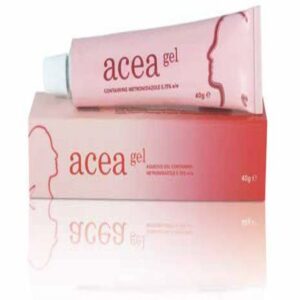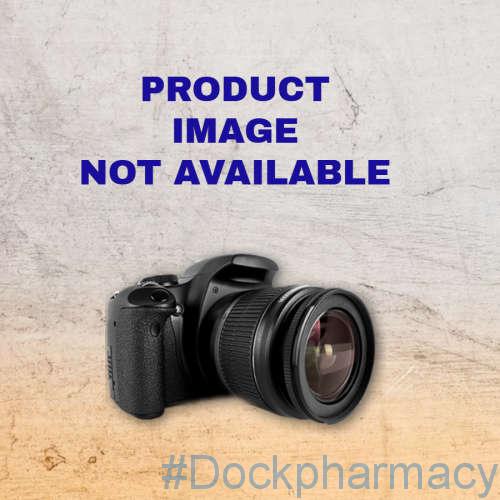Roaccutane Capsules – Isotretinoin Capsules, 30 Capsules
Roaccutane treatment must be supervised by a dermatologist
Roaccutane is available in two strengths
10mg and 20mg
Roaccutane is available in two strengths:
- Roaccutane 10mg Capsules – Isotretinoin 10mg Capsules
- Roaccutane 20mg Capsules – Isotretinoin 20mg Capsules
£24.10 – £31.50
CompareCompare- Roaccutane 10mg Capsules - Isotretinoin 10mg Capsules
- Roaccutane 20mg Capsules - Isotretinoin 20mg Capsules
- Description
- Additional Information
- Brand
- How To Use
- Product Details
- Side Effects
- Ingredients
- How to Store
- Patient Information leaflet
- Questions & Answers
Roaccutane Capsules – Isotretinoin Capsules, 30 Capsules
Introducing Roaccutane Capsules: The Ultimate Solution for Severe Acne Treatment
Are you tired of struggling with severe forms of acne that are causing you distress and permanent scarring? Look no further as Roaccutane Capsules are here to provide you with the long-awaited relief you’ve been seeking. Roaccutane, containing the powerful substance isotretinoin, is a game-changer when it comes to combating stubborn acne.
Roaccutane Capsules are specifically designed to treat severe forms of acne, including nodular or conglobate acne, as well as acne that poses a risk of permanent scarring. Whether you’re an adult or an adolescent, Roaccutane can help you regain your confidence by effectively combating those persistent acne breakouts.
When other anti-acne treatments, such as antibiotics and skin treatments, have failed to improve your condition, Roaccutane steps in as your ultimate solution. This groundbreaking medication contains isotretinoin, a retinoid that is closely related to vitamin A. With its unique properties, Roaccutane tackles acne at its root, providing you with noticeable results.
Please note that Roaccutane should only be used by individuals who have not yet seen improvement with other anti-acne treatments. Moreover, it is essential to consult a dermatologist, a doctor specializes in skin problems, who will supervise your Roaccutane treatment journey. Your dermatologist will guide you through the entire process, ensuring safety and optimal results.
Roaccutane is suitable for individuals aged 12 years and above. However, it should not be used to treat prepubertal acne. If you are under 18 years of age, you must not take Roaccutane unless two prescribers have agreed that your condition does not respond adequately to other treatments and the benefits of treatment outweigh the risks
The soft capsules of Roaccutane are available in two strengths, containing either 10 mg or 20 mg of isotretinoin. This allows for personalized dosing based on the severity of your acne and the recommendation of your dermatologist.
When it comes to combating severe acne, Roaccutane Capsules are your ally in achieving clear and healthy skin. Say goodbye to the frustration and embarrassment caused by persistent breakouts and welcome a smoother, more radiant complexion.
Experience the transformative power of Roaccutane Capsules for yourself. Get ready to embrace a new chapter of confidence and self-assurance. Don’t let severe acne hold you back any longer – take control of your skin with Roaccutane!
Roaccutane Capsules is also available in the generic form: Isotretinoin Capsules
Roaccutane Capsules Reviews
After using Roaccutane Capsules, it’s helpful to let others know about your experience. Reviews of an item help other users know that medicines received have helped the condition it is claimed for, how well the treatment worked or any issues to be aware of. We invite our users to leave a review of both their treatment and of the service provided. Click on the reviews tab to see if there has been feedback on this item.
What is the price of Roaccutane Capsules?
The price of Roaccutane Capsules starts from £24.10
Where can you buy Roaccutane Capsules?
You can buy Loperamide 2mg Capsule at Dock Pharmacy Essex UK, UK Online Pharmacy.
Can you buy Roaccutane Capsules Over the counter?
Roaccutane Capsules is not available to buy over the counter. You need a prescription to buy Roaccutane Capsules
Dock Pharmacy
128 Dock Road, Tilbury, Essex, RM18 7BJ
Tel: 01375846316
| Strength | 10mg Capsules, 20mg Capsules |
|---|---|
Brand
ROACCUTANE
How To Use
How to take Roaccutane
Always take Roaccutane exactly as your doctor has told you.
Check with your doctor or pharmacist if you are not sure.
The usual starting dose is 0.5 mg per kilogram body weight per day (0.5 mg/kg/day). So if you weigh 60 kg, your dose will usually start at 30 mg a day.
Take the capsules once or twice daily. Take on a full stomach. Swallow them whole, with a drink or a mouthful of food.
After a few weeks your doctor may adjust your dose. This depends on how you are getting on with your medicine. For most patients the dose will be between 0.5 and 1.0 mg
If you have severe kidney problems, you will usually start on a lower dose (such as 10 mg/day) which will be increased up to the highest dose your body can tolerate. If your body can’t tolerate the recommended dose, you may be prescribed a lower dose: that can mean you are treated for longer and your acne might be more likely to come back.
A course of treatment usually lasts for 16 to 24 weeks. Most patients only need one course. Your acne may continue to improve for up to 8 weeks after treatment. You won’t usually start another course until then.
Some people find their acne gets worse during the first weeks of treatment. It usually improves as treatment goes on.
Product Details
What you need to know before you take Roaccutane
Do not take Roaccutane: · If you are pregnant or breast-feeding · If there is any chance you could become pregnant, you must follow the precautions under “Pregnancy prevention programme”, see section on “Warnings and precautions”. · If you are allergic to isotretinoin, peanut or soya or any other ingredients of this medicine (listed in section 6). · If you have liver disease · If you have very high levels of blood fats (e.g. high cholesterol or triglycerides) · If you have very high levels of vitamin A in your body (hypervitaminosis A) · If you are receiving treatment with tetracyclines (a type of antibiotic) at the same time (see “Other medicines and Roaccutane”) If any of these apply to you, go back to your doctor before taking any Roaccutane. Warnings and precautions Talk to your doctor or pharmacist before taking Roaccutane: · If you have ever had any kind of mental health problems. This includes depression, aggressive tendencies or mood changes. It also includes thoughts about hurting yourself or ending your life. This is because your mood may be affected while taking Roaccutane. Your doctor will discuss how best to monitor your mental health during your treatment. Talk to your doctor if you experience persistent pain in your lower back or buttocks during treatment with Roaccutane. These symptoms may be signs of sacroiliitis, a type of inflammatory back pain. Your doctor may discontinue treatment with Roaccutane and refer you to a specialist for treatment of inflammatory back pain. Further evaluation may be needed including imaging modalities such as MRI. Pregnancy prevention programme Women who are pregnant must not take Roaccutane This medicine can seriously harm an unborn baby (the medicine is said to be ‘teratogenic’) – it can cause serious abnormalities of the unborn baby’s brain, face, ear, eye, heart and certain glands (thymus gland and parathyroid gland). It also makes a miscarriage more likely. This may happen even if Roaccutane is taken only for a short time during pregnancy. • You must not take Roaccutane if you are pregnant or if you think you might be pregnant. • You must not take Roaccutane if you are breastfeeding. The medicine is likely to pass into your milk and may harm your baby. • You must not take Roaccutane if you could get pregnant during treatment. • You must not get pregnant for one month after stopping this treatment because some medicine may still be left in your body. Women who could get pregnant are prescribed Roaccutane under strict rules. This is because of the risk of serious harm to the unborn baby These are the rules: 3 uk-pl-roaccutane-clean-230929-10mg-20mg-caps eMC • Your doctor must explain the risk of harm to the unborn baby – you must understand why you must not get pregnant and what you need to do to prevent getting pregnant. • You must have talked about contraception (birth control) with your doctor. The doctor will give you information on how not to get pregnant. The doctor may send you to a specialist for contraception advice. • Before you start treatment, your doctor will ask you to take a pregnancy test. The test must show that you are not pregnant when starting treatment with Roaccutane. Women must use effective contraception before, during and after taking Roaccutane · You must agree to use at least one very reliable method of contraception (for example an intra uterine device or contraceptive implant) or, two effective methods that work in different ways (for example a hormonal contraceptive pill and a condom). Discuss with your doctor which methods would be suitable for you. · You must use contraception for a month before taking Roaccutane, during treatment and for a month afterwards. · You must use contraception even if you do not have periods or you are not sexually active (unless your doctor decides this is not necessary). Women must agree to pregnancy testing before, during and after taking Roaccutane • You must agree to regular follow-up visits, ideally every month. • You must agree to have regular pregnancy tests, ideally every month during treatment and, because some medicine may still be left in your body, 1 month after stopping Roaccutane (unless your doctor decides this is not necessary in your case). • You must agree to extra pregnancy tests if your doctor asks you. • You must not get pregnant during treatment or for a month afterwards because some medicine may still be left in your body. • Your doctor will discuss all these points with you, using a checklist and will ask you (or a parent/guardian) to sign it. This form confirms that you have been told about the risks and that you will follow the rules above. If you get pregnant while taking Roaccutane, stop taking the medicine straight away, and contact your doctor. Your doctor may send you to a specialist for advice. Also, if you become pregnant within one month after you stop taking Roaccutane, you should contact your doctor. Your doctor may send you to a specialist for advice. Your doctor has written information on pregnancy prevention for the users of Roaccutane which should be given to you. A new prescription is needed for more treatment. Each prescription is only valid for 7 days. Advice for men The levels of oral retinoid in the semen of men taking Roaccutane are too low to harm their partners’ unborn baby. However, you must never share your medication with anyone. Additional precautions You should never give this medicinal product to another person. Please take any unused capsules to your pharmacist at the end of treatment. You should not donate blood during treatment with this medicine and for 1 month after stopping Roaccutane because an unborn baby could be harmed if a pregnant patient receives your blood. 4 uk-pl-roaccutane-clean-230929-10mg-20mg-caps eMC Mental health problems You may not notice some changes in your mood and behaviour and so it is very important that you tell your friends and family that you are taking this medicine. They may notice these changes and help you quickly identify any problems that you need to talk to your doctor about. Advice for all patients · Tell your doctor if you have ever had any mental illness (including depression, suicidal behaviour or psychosis), or if you take medicines for any of these conditions. · Severe Skin reactions (e.g. erythema multiforme (EM), Stevens-Johnson syndrome (SJS) and toxic epidermal necrolysis (TEN)) have been reported with the use of Roaccutane. The rash may progress to widespread blistering or peeling of the skin. You should also look for ulcers in the mouth, throat, nose, genitals and conjunctivitis (red and swollen eyes). · Rarely, Roaccutane may cause severe allergic reactions some of which can affect skin in the form of eczema, hives and bruises or red patches on arms and legs. If you develop an allergic reaction, stop taking Roaccutane, seek urgent advice from a doctor and tell him that you are taking this medicine. · Cut down on intensive exercise and physical activity. Roaccutane can cause muscle and joint pain particularly in children and teenagers undertaking vigorous physical activity. · Roaccutane has been associated with inflammatory bowel disease. Your doctor will take you off Roaccutane if you have severe bloody diarrhoea without any history of gastrointestinal disorders. · Roaccutane may cause dry eyes, intolerance to contact lenses and visual difficulties including decreased night vision. Cases of dry eyes not resolving after discontinuation of therapy have been reported. Tell your doctor if you have any of these symptoms. Your doctor may ask you to use lubricating eye ointment or tear replacement therapy. If you use contact lenses and you have developed intolerance to contact lenses, you may be advised to wear glasses during the treatment. Your doctor may refer you to a specialist for advice if you develop visual difficulties and you may be asked to stop taking Roaccutane. · Benign intracranial hypertension has been reported with Roaccutane use and in some cases where Roaccutane was used together with tetracyclines (a type of antibiotic). Stop taking Roaccutane and seek urgent advice from your doctor if you develop symptoms like headache, nausea, vomiting and visual disturbances. Your doctor may refer you to a specialist to check for swelling of optic disk in the eye (papilloedema). · Roaccutane may increase liver enzyme levels. Your doctor will do blood tests before, during and after Roaccutane treatment to check these levels. If they stay high, your doctor may lower your dose or take you off Roaccutane. · Roaccutane commonly increases blood fats, such as cholesterol or triglycerides. Your doctor will test these levels before, during and after Roaccutane treatment. It is best that you do not drink alcoholic drinks or that you at least reduce the amount you usually drink while on treatment. Tell your doctor if you already have high blood fats, diabetes (high blood sugars), are overweight, or an alcoholic. You may need blood tests more often. If your blood fats stay high, your doctor may lower your dose, or take you off Roaccutane. · Tell your doctor if you have any kidney problems. Your doctor may start you on a lower dose of Roaccutane and then increase it to the maximum tolerated dose. · Roaccutane may increase blood sugar levels. In rare cases, people become diabetic. Your doctor may monitor blood sugar levels during treatment, particularly if you already have diabetes, are overweight, or are an alcoholic. · Your skin is likely to get dry. Use a skin moisturising ointment or cream and a lip balm during treatment. To prevent skin irritation you should avoid using exfoliating or anti-acne products. · Avoid too much sun and do not use a sun-lamp or sun-bed. Your skin may become more sensitive to sunlight. Before you go out in the sun, use a sun-protection product with a high protection factor (SPF 15 or higher). · Don’t have any cosmetic skin treatments. Roaccutane may make your skin more fragile. Don’t have any waxing (hair removal), dermabrasion or laser treatments (removing horny skin 5 uk-pl-roaccutane-clean-230929-10mg-20mg-caps eMC or scars) during treatment, or for at least 6 months after treatment. They could cause scarring, skin irritation, or rarely, changes in the colour of your skin. · Isotretinoin has been associated with sexual problems. These include problems getting or maintaining an erection, lower libido, vaginal dryness, orgasm difficulties and reduced sensation in the genitals. There have been reports of long-lasting sexual problems where the symptoms have continued despite stopping treatment with isotretinoin. Talk to your doctor if you experience any sexual problems during treatment. Children and adolescents The use of Roaccutane in children under the age of 12 is not recommended. This is because it is not known if it is safe or effective in this age group. Roaccutane should not be used to treat prepubertal acne and not in children aged less than 12 years of age. If you are aged under 18 years of age, you must not take Roaccutane unless two prescribers have agreed that your condition does not respond adequately to other treatments and the benefits of treatment outweigh the risks. Other medicines and Roaccutane Tell your doctor or pharmacist if you are taking, have recently taken or might take any other medicines including herbal and non-prescription products. · Do not take vitamin A supplements or tetracyclines (a type of antibiotic), or use any skin treatments for acne while you are on Roaccutane. It is fine to use moisturisers and emollients (skin creams or preparations that prevent water loss and have a softening effect on the skin). · Avoid the use of topical keratolytic or exfoliative anti-acne agents while you are on Roaccutane. Pregnancy and breast-feeding If you are pregnant or breast-feeding, think you may be pregnant or are planning to have a baby, ask your doctor for advice before taking this medicine. For more information on contraception, pregnancy and breast-feeding, see section 2 “Pregnancy prevention programme”. Driving and using machines You may not see as well at night during your treatment. This can happen suddenly. In rare cases this has continued after the treatment has stopped. Drowsiness and dizziness have been reported very rarely. If this happens to you, you should not drive or operate machinery. Roaccutane contains sorbitol and soya-bean oil This medicine contains 2.00 mg – 3.05 mg sorbitol in each 10 mg capsule. This medicine contains 3.20 mg – 4.86 mg sorbitol in each 20 mg capsule. If you are allergic to peanut or soya, do not use this medicine.
Side Effects
Possible side effects of Roaccutane
Like all medicines, this medicine can cause side effects, although not everybody gets them. Some of the side effects associated with the use of isotretinoin are related to the dose. The side effects are generally reversible after changing the dose or stopping treatment, however some may continue after treatment has stopped. Some side effects can be serious and you must immediately contact your doctor. Side effects requiring immediate medical attention: Skin problems Frequency not known (frequency cannot be estimated from available data) • Serious skin rashes (erythema multiforme, Stevens- Johnson syndrome, and toxic epidermal necrolysis), which are potentially life-threatening and require immediate medical attention. These appear initially as circular patches often with central blisters usually on arms and hands or legs and feet, more severe rashes may include blistering of the chest and back. Additional symptoms such as infection of the eye (conjunctivitis) or ulcers of the mouth, throat or nose may occur. Severe forms of rash may progress to widespread peeling of the skin which can be life threatening. These serious skin rashes are often preceded by headache, fever, body aches (flu-like symptoms). If you develop a serious rash or these skin symptoms, stop taking Roaccutane and contact your doctor immediately. Mental problems Rare effects (may affect up to 1 in every 1000 people) • Becoming violent or aggressive. Very rare effects (may affect up to 1 in every 10,000 people) 7 uk-pl-roaccutane-clean-230929-10mg-20mg-caps eMC • Unusual behaviour. • Signs of psychosis: a loss of contact with reality, such as hearing voices or seeing things that are not there. Frequency not known (frequency cannot be estimated from available data) • Depression or related disorders. Signs of this include sad or altered mood, anxiety, feelings of emotional discomfort, • Existing depression getting worse. • Some people have had thoughts about hurting themselves or ending their own lives (suicidal thoughts), have tried to end their own lives (attempted suicide), or have ended their lives (suicide). These people may not appear to be depressed. Contact your doctor straight away if you get signs of any of these mental problems. Your doctor may tell you to stop taking Roaccutane. That may not be enough to stop the effects: you may need more help, and your doctor can arrange this. Allergic reactions Rare effects (may affect up to 1 in every 1000 people) • Serious (anaphylactic) reactions: difficulty breathing or swallowing caused by sudden swelling of the throat, face, lips and mouth. Also sudden swelling of the hands, feet and ankles. Very rare effects (may affect up to 1 in every 10,000 people) • Sudden tight chest, shortness of breath and wheezing, particularly if you have asthma. If you have a serious reaction, get emergency medical help immediately. If you have any allergic reaction, stop taking Roaccutane and contact your doctor. Bones and muscles Frequency not known (frequency cannot be estimated from available data) • Muscle weakness which can be potentially life-threatening, may be associated with trouble moving arms or legs, painful, swollen, bruised areas of the body, dark-coloured urine, reduced or no urine output, confusion or dehydration. These are signs of rhabdomyolysis, a breakdown of muscle tissue which can lead to kidney failure. This may occur if you are doing intensive physical activity while you’re on Roaccutane. Liver and kidney problems Very rare effects (may affect up to 1 in every 10,000 people) • Yellow skin or eyes, and feeling tired. These can be signs of hepatitis. Stop taking Roaccutane straight away and contact your doctor. • Difficulty urinating (passing water), swollen and puffy eyelids, feeling excessively tired. These may be signs of kidney inflammation. Stop taking Roaccutane straight away and contact your doctor. Nervous system problems Very rare effects (may affect up to 1 in every 10,000 people) • Lasting headache, along with feeling sick (nausea), being sick (vomiting) and change in your eyesight including blurred vision. These may be signs of benign intracranial hypertension, especially if Roaccutane is taken with antibiotics called tetracycline. Stop taking Roaccutane straight away and contact your doctor. Gut and stomach problems Very rare effects (may affect up to 1 in every 10,000 people) • Severe abdominal (tummy) pain, with or without severe bloody diarrhoea, feeling sick (nausea) and being sick (vomiting). These can be signs of serious gut conditions. Stop taking Roaccutane straight away and contact your doctor. 8 uk-pl-roaccutane-clean-230929-10mg-20mg-caps eMC Eye disorders Very rare effects (may affect up to 1 in every 10,000 people) • Blurred vision. If you get blurred vision, stop taking Roaccutane straight away and contact your doctor. If your sight is affected in any other way tell a doctor as soon as you can. Other side effects: Very common side effects with Roaccutane: (may affect more than 1 in 10 people) • Dryness of the skin, especially of the lips and face; inflamed skin, chapped and inflamed lips, rash, mild itching and slight peeling. Use a moisturising cream from the start of treatment. • Skin becomes more fragile and redder than usual, especially the face. • Back pain; muscle pain; joint pain particularly in children and teenagers. • To avoid making any bone or muscle problems worse, cut down on intensive physical activity while you’re on Roaccutane. • Inflammation of the eye (conjunctivitis) and eyelid area; eyes feel dry and irritated. Ask a pharmacist for suitable eye drops. If you get dry eyes and wear contact lenses, you may need to wear glasses instead. • Raised liver enzymes seen in blood tests. • Changed levels of fats in the blood (including HDL or triglycerides). • Bruising, bleeding or clotting more easily – if clotting cells are affected. • Anaemia – weakness, dizziness, pale skin – if red blood cells are affected. Common side effects with Roaccutane: (may affect up to 1 in 10 people) • Headache. • Higher levels of cholesterol in the blood. • Protein or blood in the urine. • More liable to get infections – if the white blood cells are affected. • Inside of the nose becomes dry and crusted, causing mild nosebleeds. • Sore or inflamed throat and nose. • Allergic reactions such as rash, itchiness. If you have any allergic reaction, stop taking Roaccutane and contact your doctor. Rare side effects with Roaccutane: (may affect up to 1 in 1,000 people) • Hair loss (alopecia). This is usually only temporary. Your hair should return to normal after the treatment ends. Very rare side effects with Roaccutane: (may affect up to 1 in 10,000 people) • You may see less well at night; colour blindness and colour vision gets worse. • Sensitivity to light may increase; you may find that you need to wear sunglasses to protect your eyes from too bright sunlight. • Other sight problems including blurred vision, distorted vision, cloudy surface on the eye (corneal opacity, cataracts). • Excessive thirst; frequent need to urinate; blood tests show an increase in your blood sugar. These can all be signs of diabetes. • Acne can get worse in the first few weeks, but symptoms should improve with time. • Skin inflamed, swollen, and darker than usual, especially on the face. • Excess sweating or itching. • Arthritis; bone disorders (delayed growth, extra growth and changes to bone density); growing bones may stop growing. • Calcium deposits in soft tissue, sore tendons, high levels of muscle breakdown products in your blood if you exercise vigorously. • Increased sensitivity to light. • Bacterial infections at the base of the nail, changes to nails. • Swellings, discharging, pus. • Thickened scarring after surgery. • Increased body hair. 9 uk-pl-roaccutane-clean-230929-10mg-20mg-caps eMC • Convulsions, drowsiness, dizziness. • Lymph glands may become swollen. • Dry throat, hoarseness. • Hearing difficulties. • Generally feeling unwell. • High levels of uric acid in the blood. • Bacterial infections. • Inflammation of the blood vessels (sometimes with bruising, red patches). Unknown frequency: (frequency cannot be estimated from the available data) • Dark or cola-coloured urine • Problems getting or maintaining an erection • Lower libido • Breast swelling with or without tenderness in males • Vaginal dryness • Difficulties having an orgasm • Reduced sensation in the genitals • Sacroiliitis, a type of inflammatory back pain causing pain in your buttocks or lower back • Inflammation of the urethra Reporting of side effects If you get any side effects, talk to your doctor or pharmacist. This includes any possible side effects not listed in this leaflet. You can also report side effects directly (see details below). United Kingdom Website: www.mhra.gov.uk/yellowcard or search for MHRA Yellow Card in the Google Play or Apple App Store By reporting side effects you can help provide more information on the safety of this medicine
Ingredients
What Roaccutane contains:
- The active substance in Roaccutane is isotretinoin.
Roaccutane comes in soft capsules containing either 10 mg or 20 mg isotretinoin.
- The other ingredients are refined soya-bean oil, hydrogenated soya-bean oil, partially hydrogenated soya-bean oil, yellow beeswax, gelatin, glycerol 85 %, sorbitol (E420) (see section 2), mannitol, hydrogenated hydrolysed starch, titanium dioxide (E171), red iron oxide (E172), p
What Roaccutane looks like and contents of the pack:
Roaccutane comes in soft capsules containing either 10 mg or 20 mg isotretinoin. The 10 mg capsules are oval, opaque, coloured brown-red and marked ROA 10. 10 uk-pl-roaccutane-clean-230929-10mg-20mg-caps eMC The 20 mg capsules are oval, opaque, coloured brown-red and white and marked ROA 20.
How to Store
How to store Roaccutane
Keep this medicine out of the sight and reach of children. Do not use this medicine after the expiry date (EXP) stated on the pack and blister. Do not store above 25° C. Store in the original package and keep blister in the outer carton in order to protect from moisture and light. Return left over capsules to your pharmacist. Only keep them if your doctor tells you to
Patient Information leaflet
Click here for the Patient Information leaflet
Please read before using the product
Questions and answers of the customers
There are no questions yet, be the first to ask something for this product.
You Might Also Like
Strength: 5mg Capsules, 56 capsules
Learn More£28.50
- Availability: in stock
Strength: 10mg Capsules, 30 Capsules
Learn More£21.75
- Availability: in stock
Strength: 20mg Capsules, 30 capsules
Learn More£20.75
- Availability: in stock
Strength: 20mg Capsules, 56 Capsules
Learn More£40.50
- Availability: in stock
Other Products From This Seller
Alcohol Swabs – Pre-Injection Swabs, 100 Sterile Isopropyl Alcohol 70% Swabs Ensure optimal hygiene with Alcohol Swabs – Pre-Injection Swabs, 100 (Aero Wipes). These sterile pre-injection swabs are infused with 70% isopropyl alcohol, providing effective disinfection for skin preparation before injections or minor medical procedures. Designed for healthcare professionals and home use, Aero Wipes offer […]
Learn More£1.69
- Availability: in stock
Original price was: £22.40.£20.89Current price is: £20.89.
COLEDOSE D3 4000IU TABLETS
Learn MoreOriginal price was: £22.40.£20.89Current price is: £20.89.
- Availability: in stock
Dydrogesterone 10mg Tablets, 10 Tablets Restore hormonal balance with Dydrogesterone 10mg Tablets (Duphaston), a clinically proven treatment for progesterone deficiency and related conditions. Dydrogesterone, the active ingredient, is a synthetic progesterone that mimics the effects of natural progesterone, offering safe and effective relief from a variety of hormonal imbalances. Trusted by women worldwide, Duphaston 10mg […]
Learn More£46.45
- Availability: in stock
Original price was: £15.29.£13.99Current price is: £13.99.
Voltarol Joint Pain & Back Relief Gel can provide all-day relief from pain & swelling (inflammation) in joints and muscles.
- Long lasting relief of pain and inflammation
- Direct Relief to affected areas
- Non-greasy
- Targeted Relief from Pain and Inflammation in Joints
- One Application in the Morning and Evening for All Day Relief
Original price was: £15.29.£13.99Current price is: £13.99.
- Availability: in stock
Sucralfate Suspension 1g/5ml, 200ml Effective Ulcer Treatment and Stomach Protection Sucralfate Suspension 1g/5ml is a highly effective treatment for stomach ulcers and inflammation, offering targeted relief and protection from further irritation caused by stomach acid. This suspension works by forming a protective barrier over ulcers, allowing them to heal and preventing further damage. Ideal for […]
Learn More£291.20
- Availability: in stock
Fostimon 75IU Injections – Urofollitropin, 10 Vials Promoting Ovulation for Fertility Treatment Fostimon 75IU Injections are specially formulated to aid ovulation in women who are experiencing difficulties conceiving due to a lack of ovulation or have not responded to other fertility treatments, such as clomifene citrate. Fostimon contains Urofollitropin, a highly purified form of human […]
Learn More£448.50
- Availability: in stock
Tolak Cream – Fluorouracil 40mg/g cream, 20g Effective Treatment for Actinic Keratosis (Sun-Damaged Skin) Tackle sun-damaged skin effectively with Tolak Cream (Fluorouracil 40mg/g), specially formulated to treat actinic keratosis (AK) on the face, ears, and scalp in adults. Tolak works by destroying pre-cancerous and cancerous cells on the skin, promoting healing while minimizing damage to […]
Learn More£39.00
- Availability: in stock
Chlorambucil 2mg Tablets, 25 Tablets Target Cancer Effectively with Chlorambucil 2mg Tablets – For Human and Veterinary Use Chlorambucil 2mg Tablets are a potent chemotherapy medication used to treat various types of cancers, including chronic lymphocytic leukemia, Hodgkin’s lymphoma, and non-Hodgkin’s lymphoma. This medication works by inhibiting the growth and spread of cancer cells, making […]
Learn More£28.50
- Availability: in stock
Nutrizym 22 Capsules – Amylase Lipase Digestive Enzymes, 100 Capsules Experience the transformative health benefits with Nutrizym 22 Capsules, your go-to solution for optimal digestive health. Each capsule is expertly formulated with a powerful blend of amylase and lipase enzymes, designed to effectively break down fats, carbohydrates, and proteins in your diet. Perfect for individuals […]
Learn More£49.95
- Availability: out of stock





















